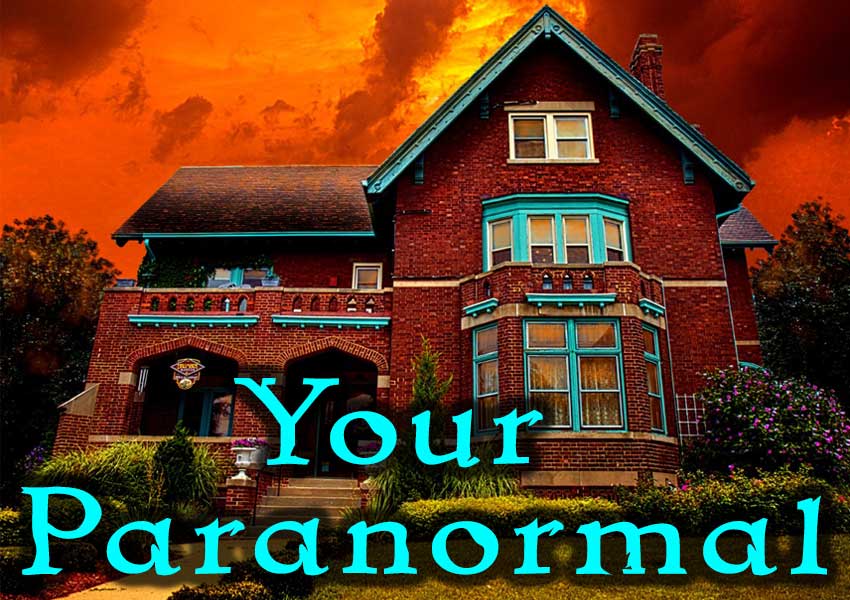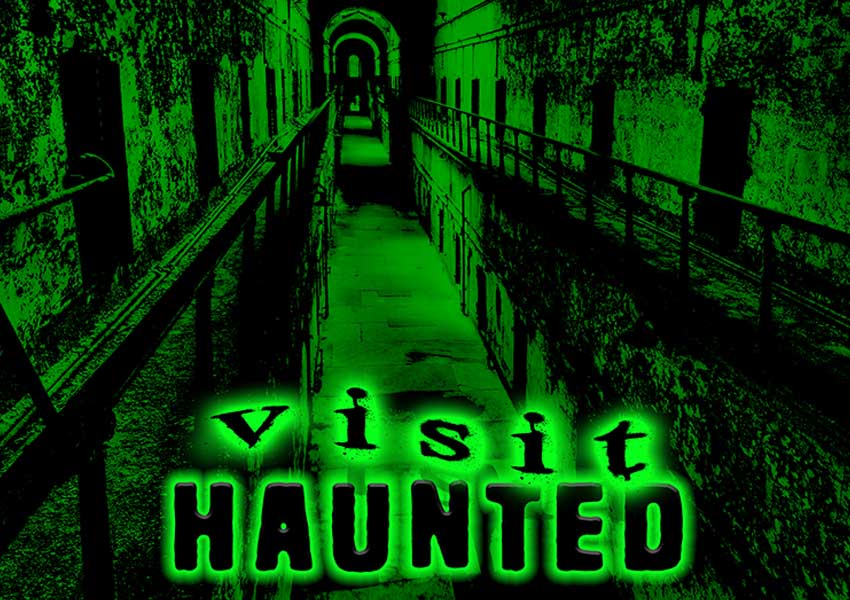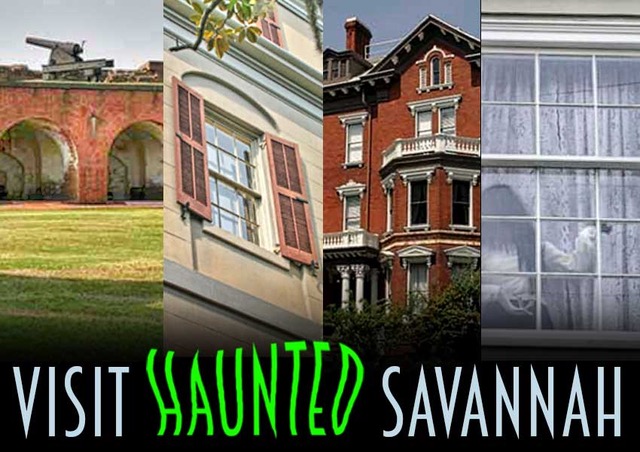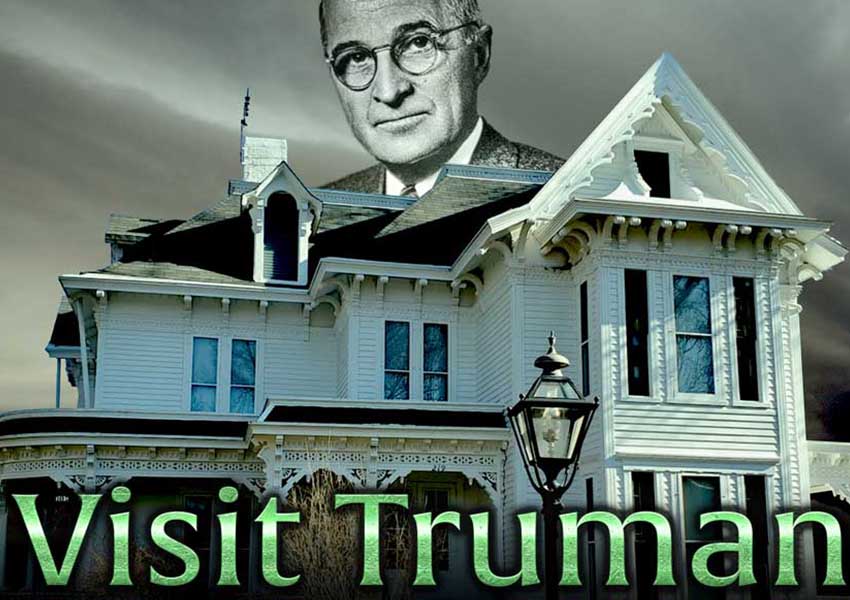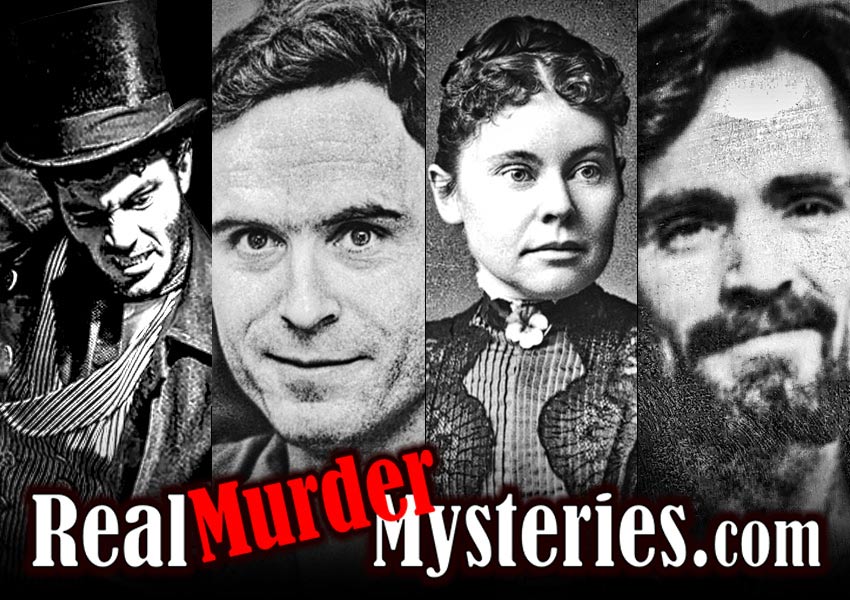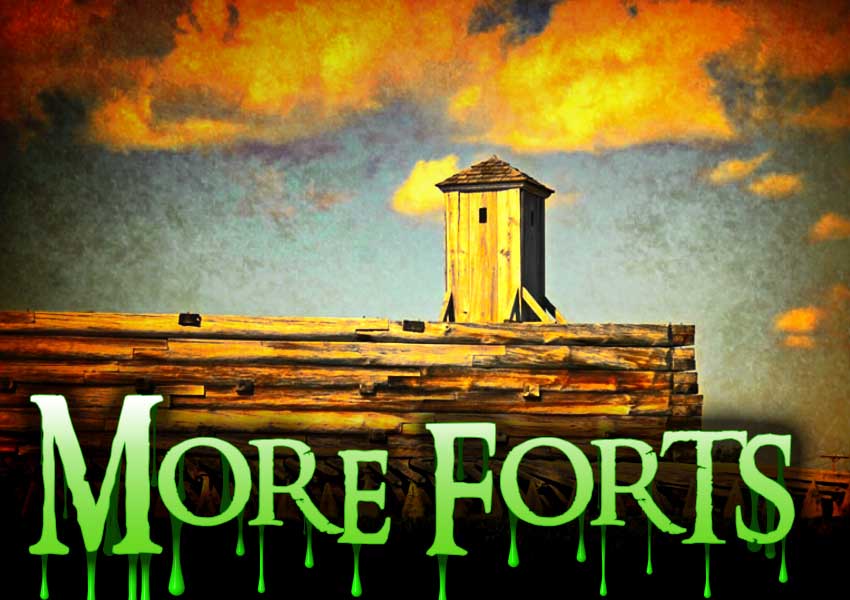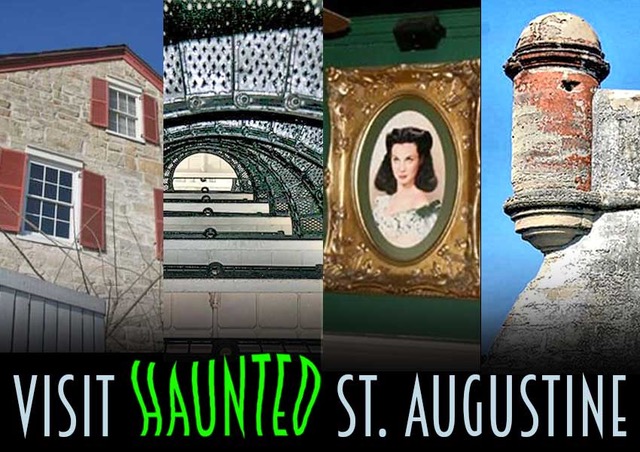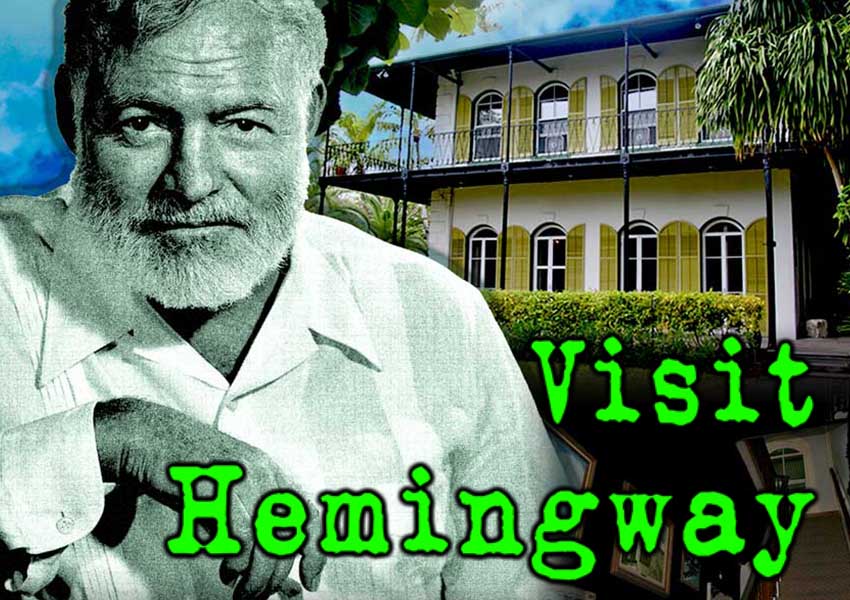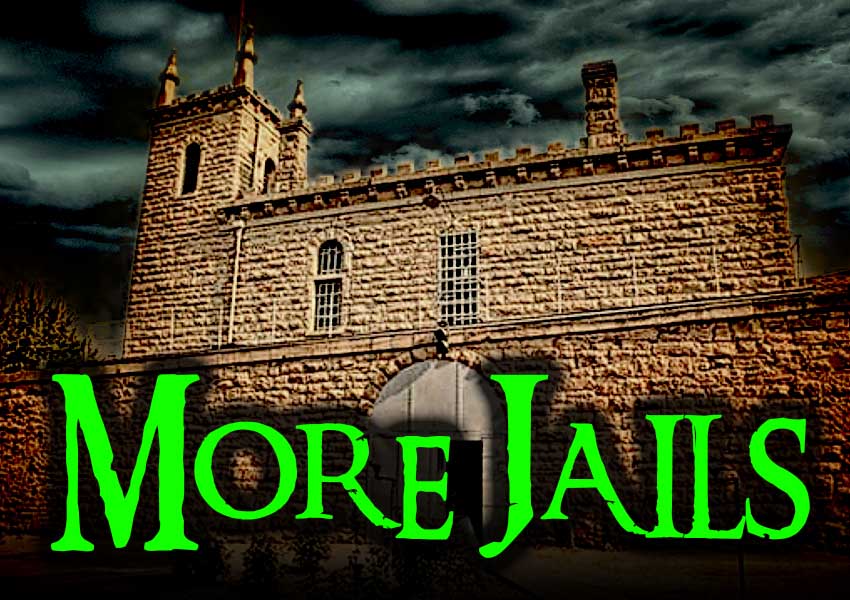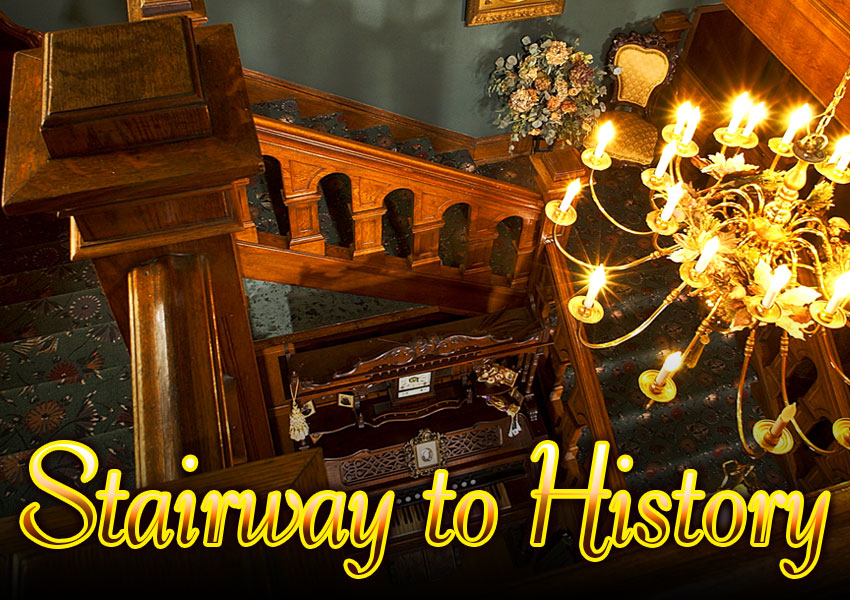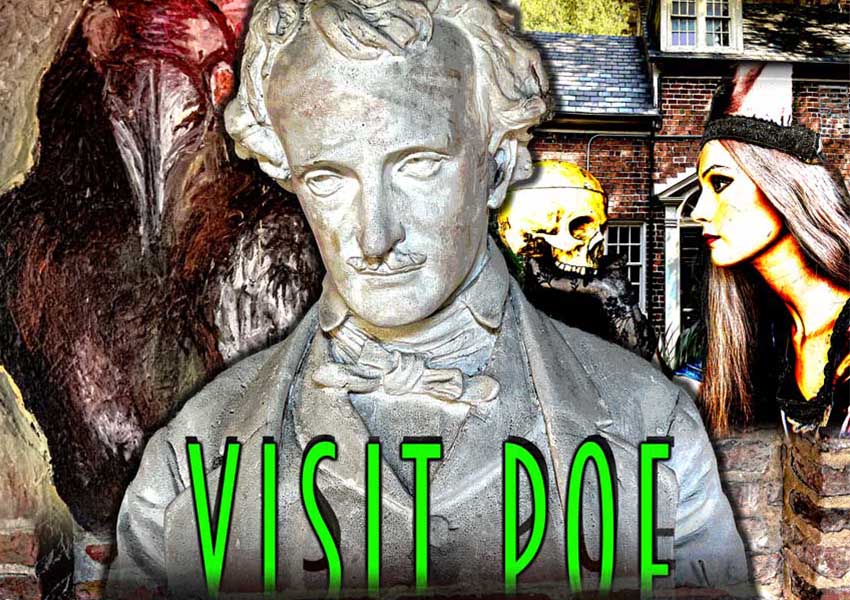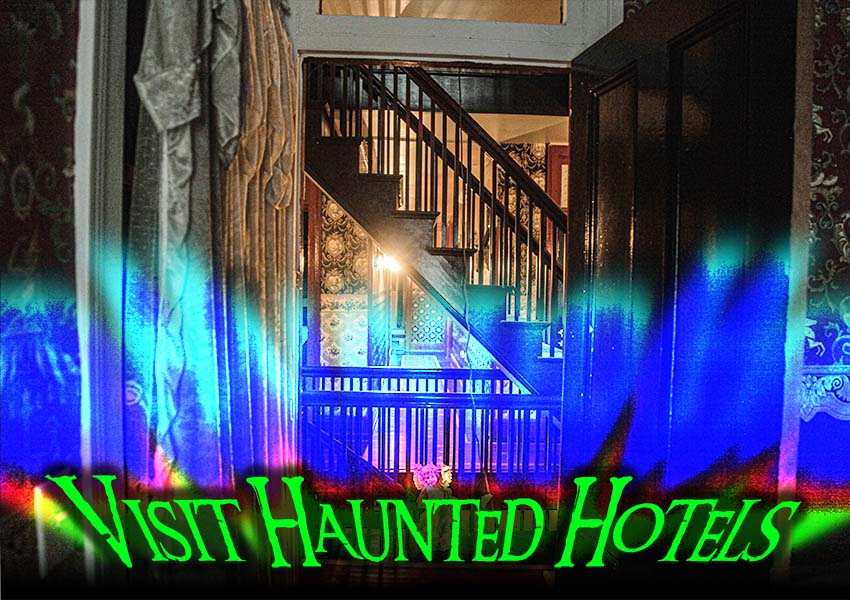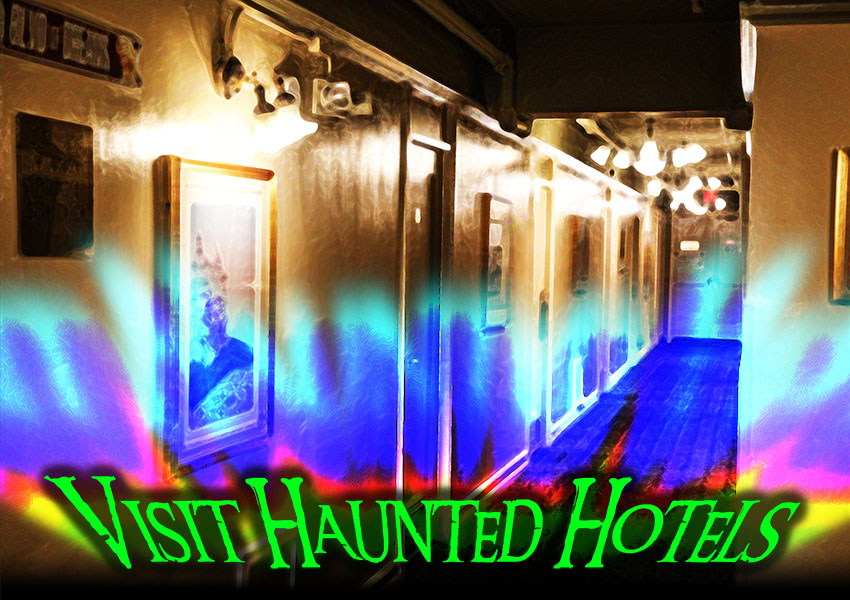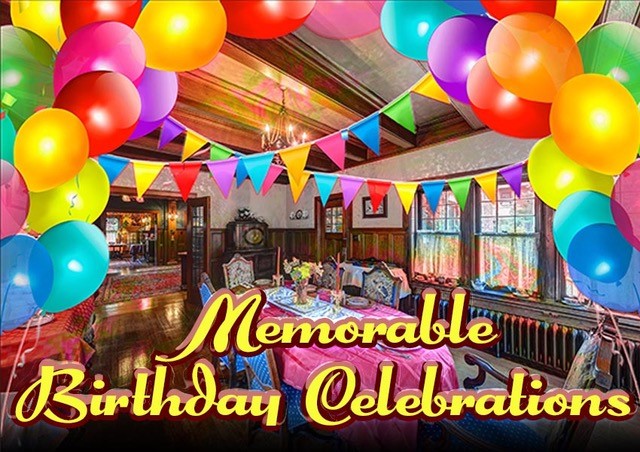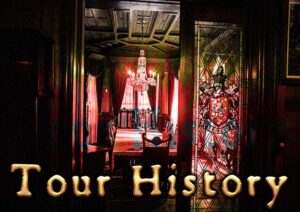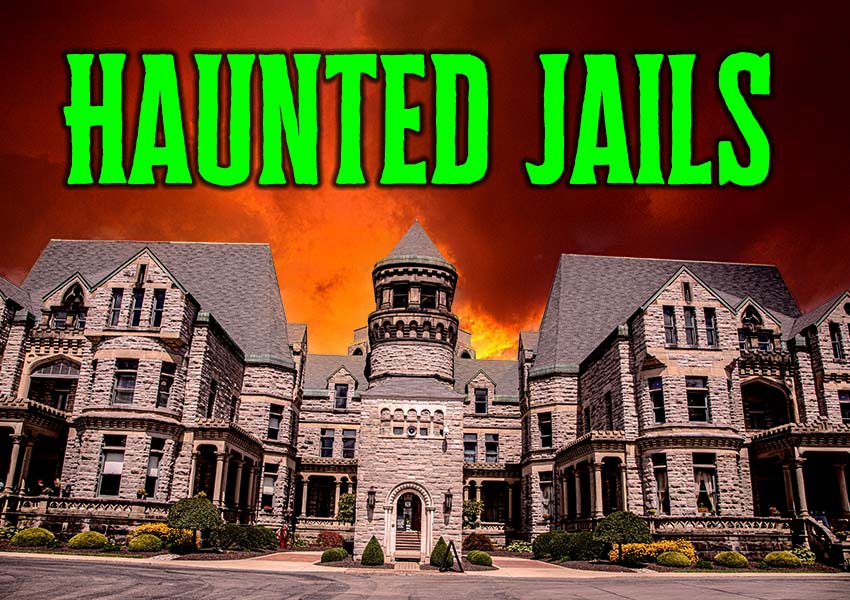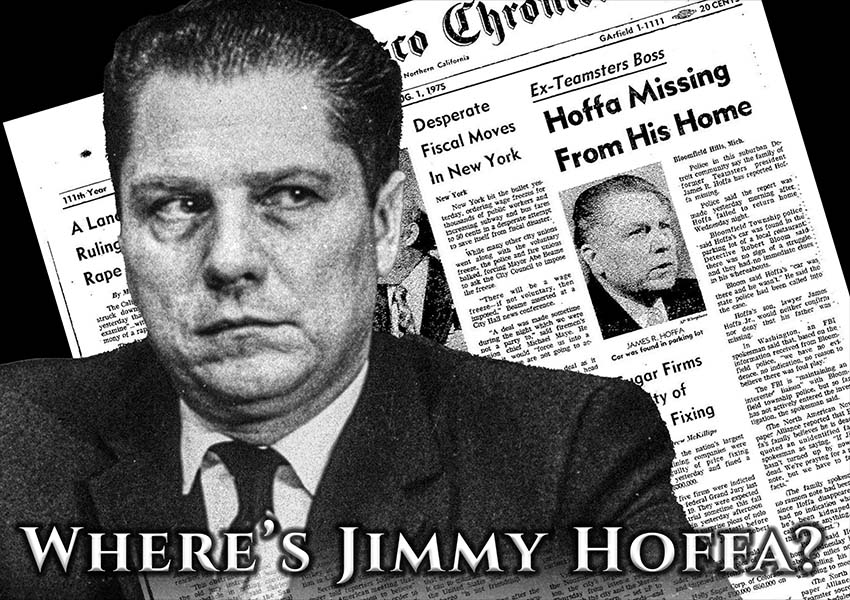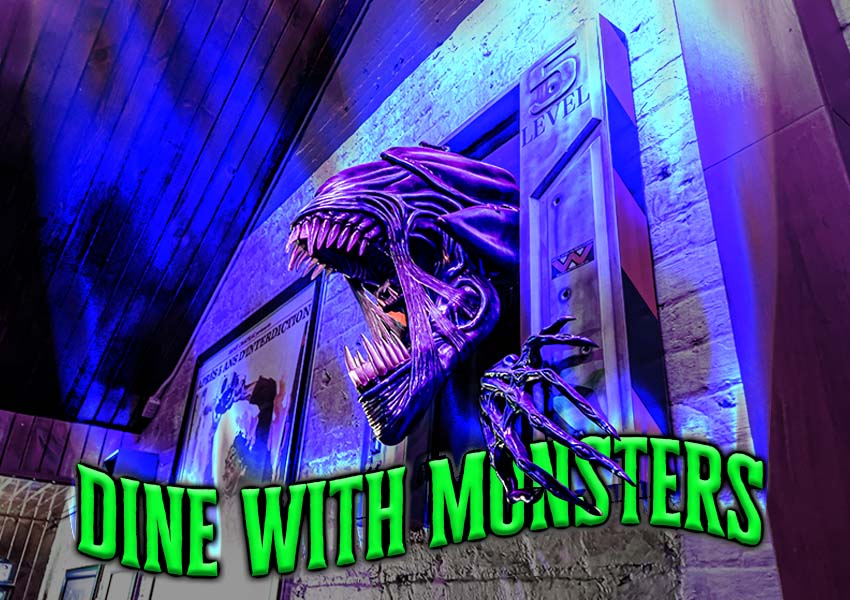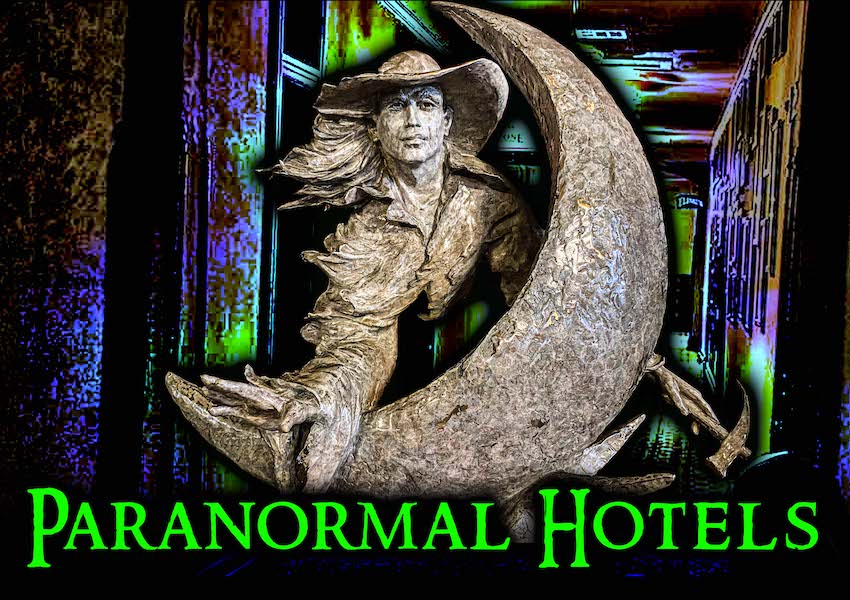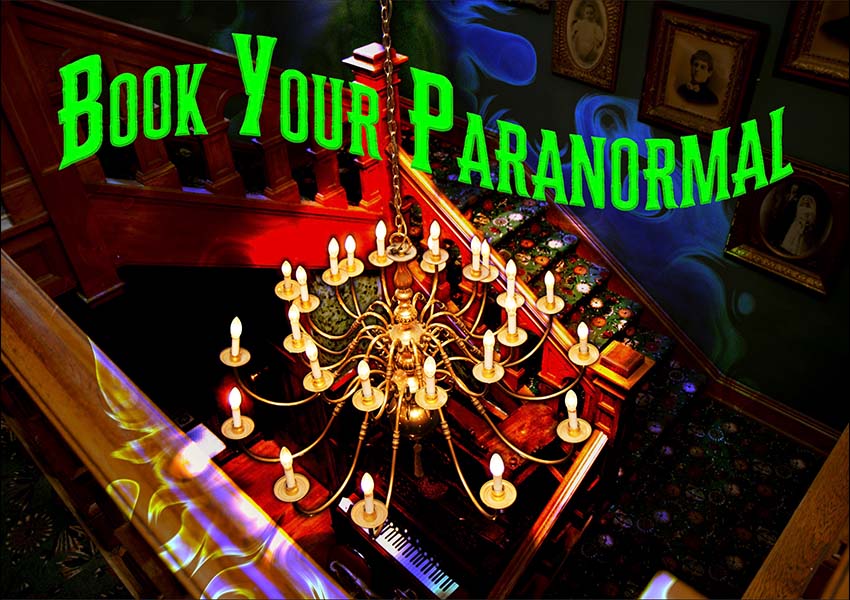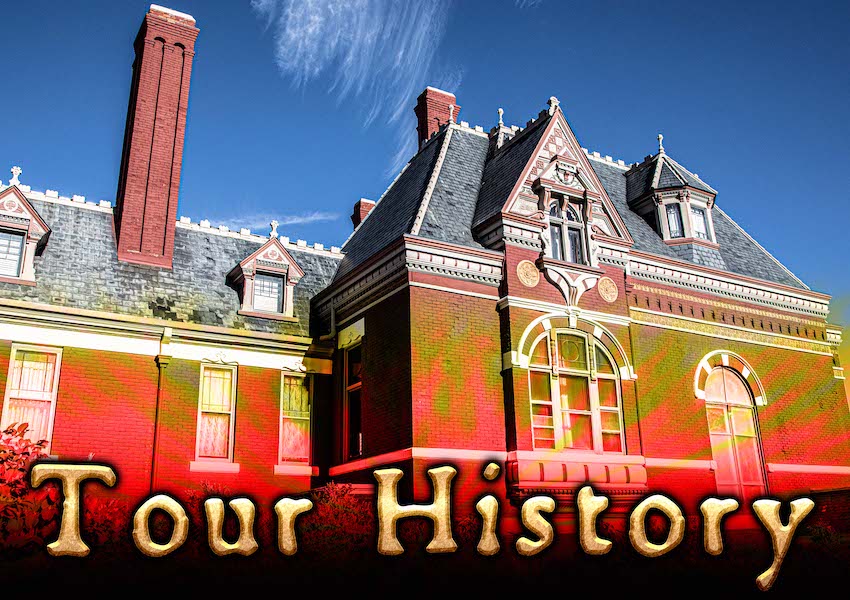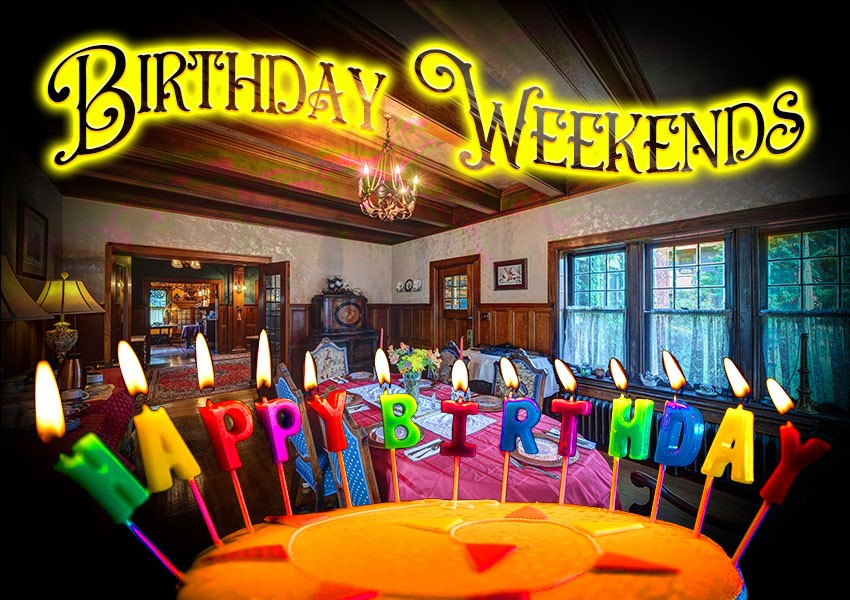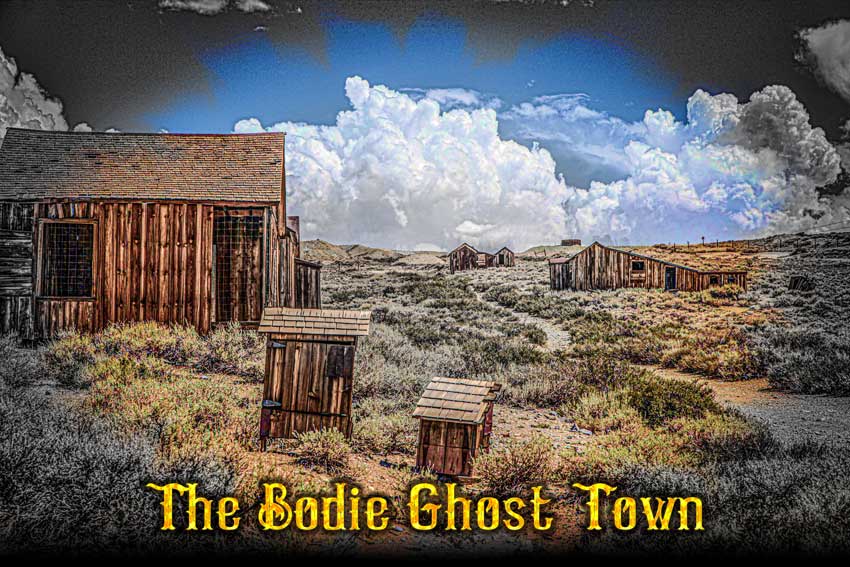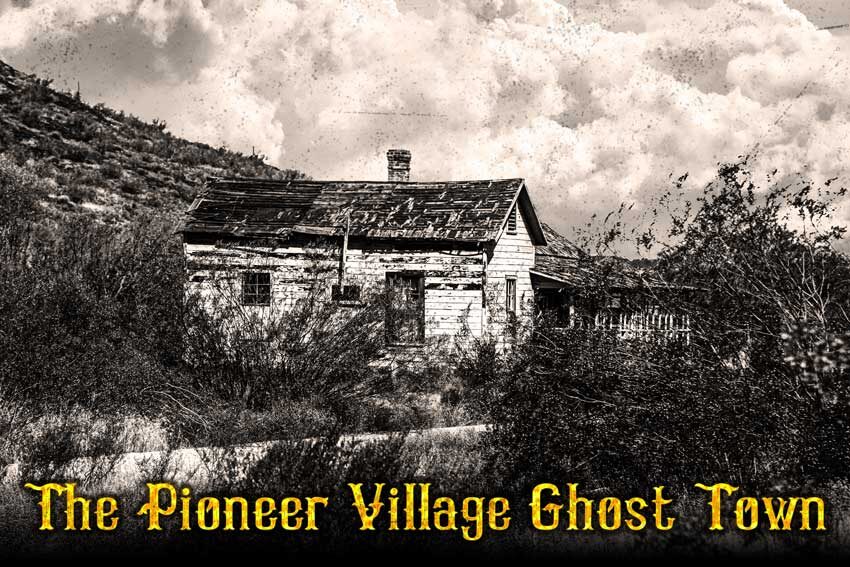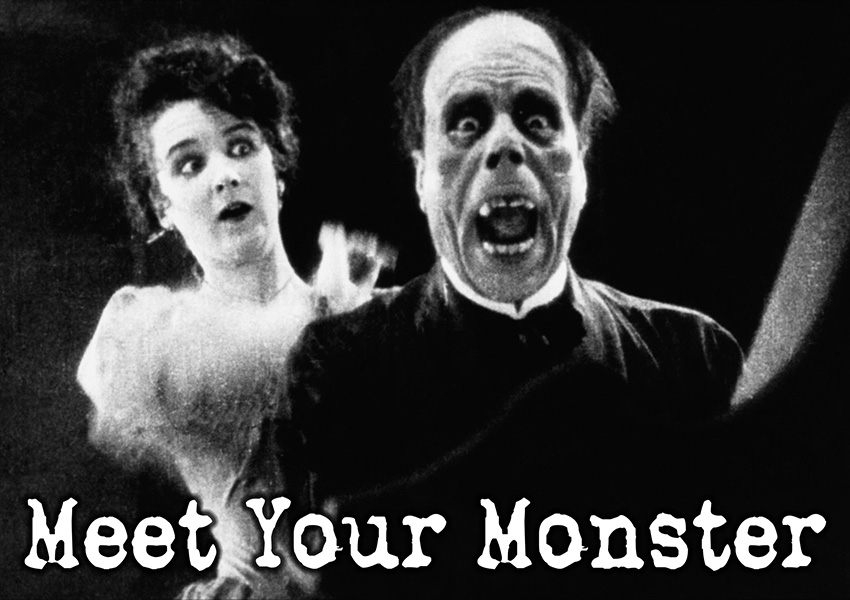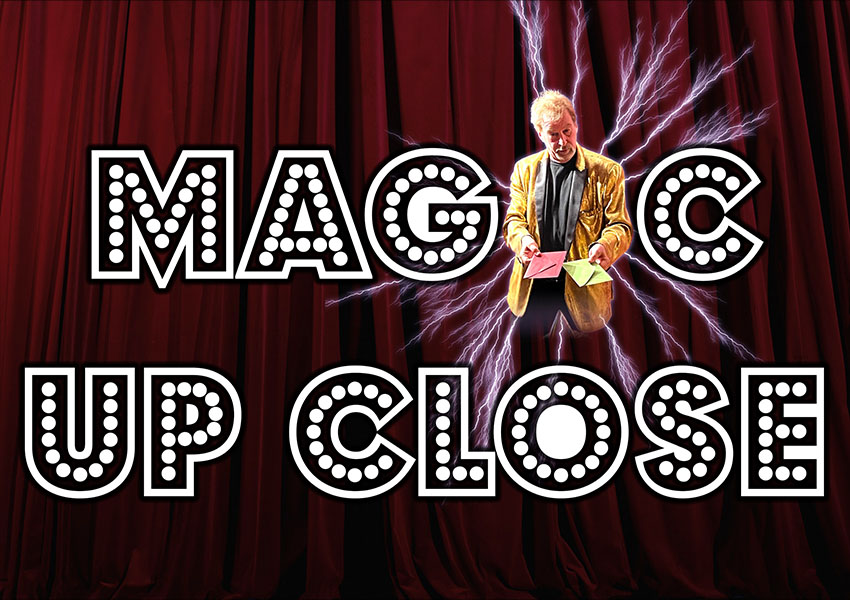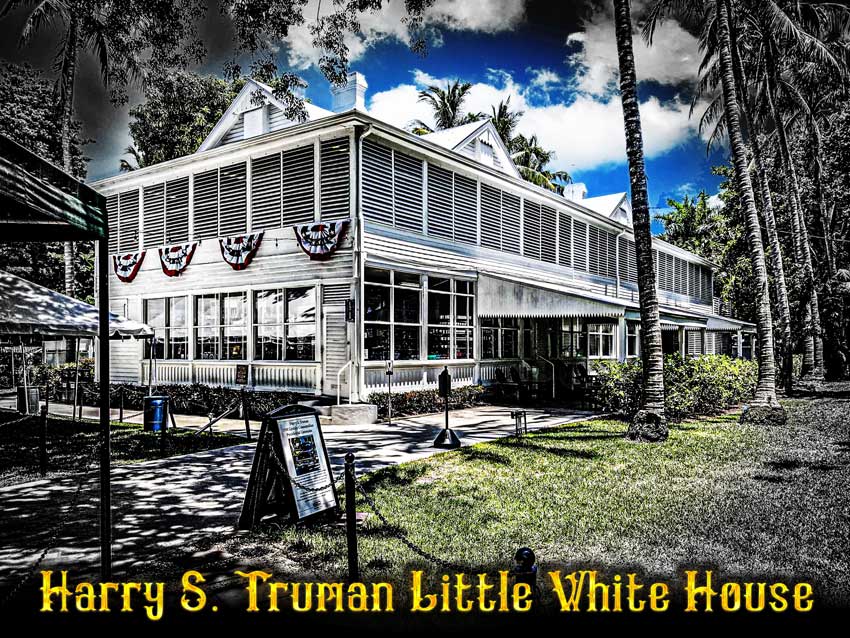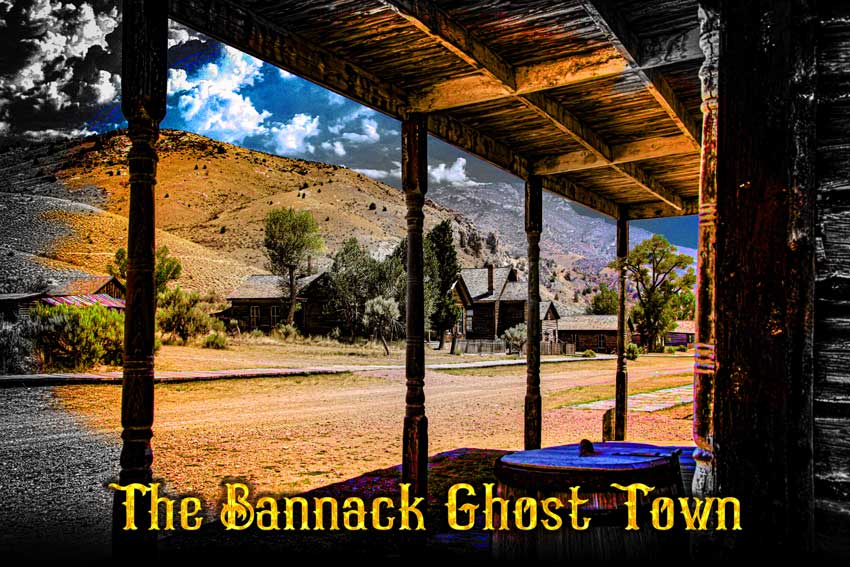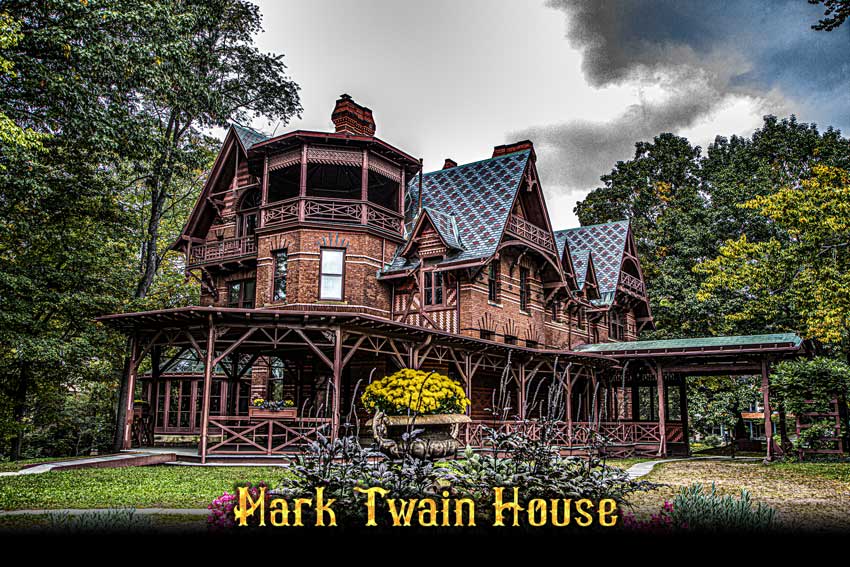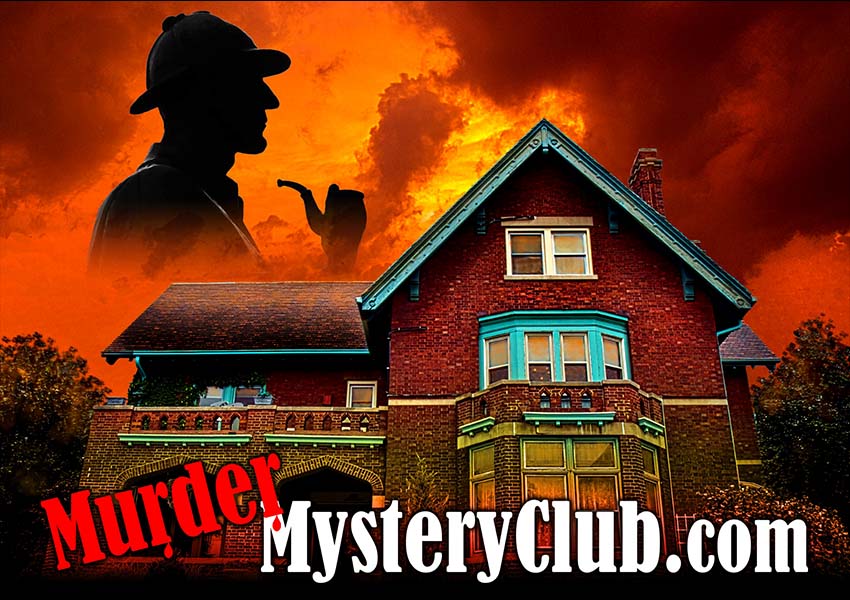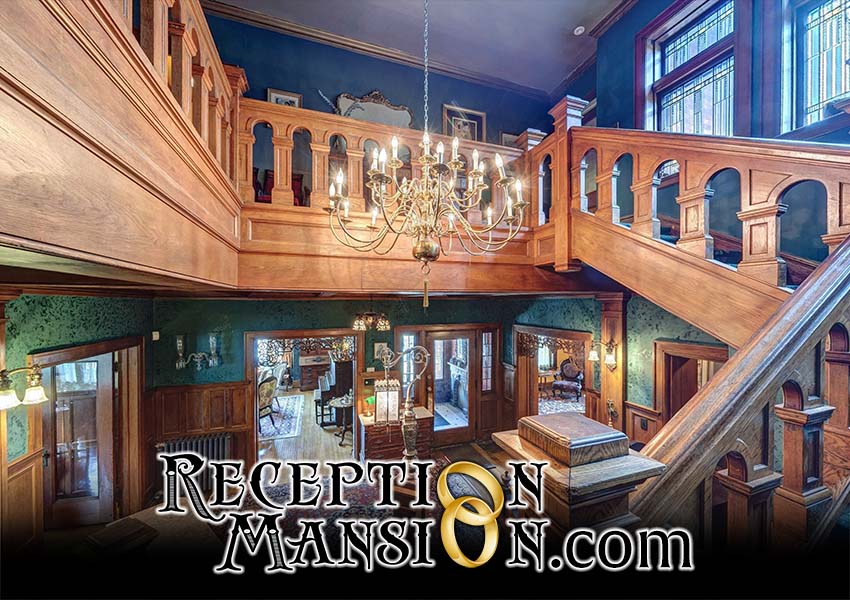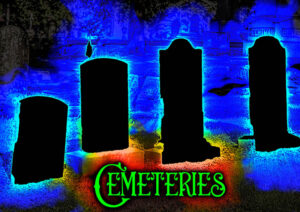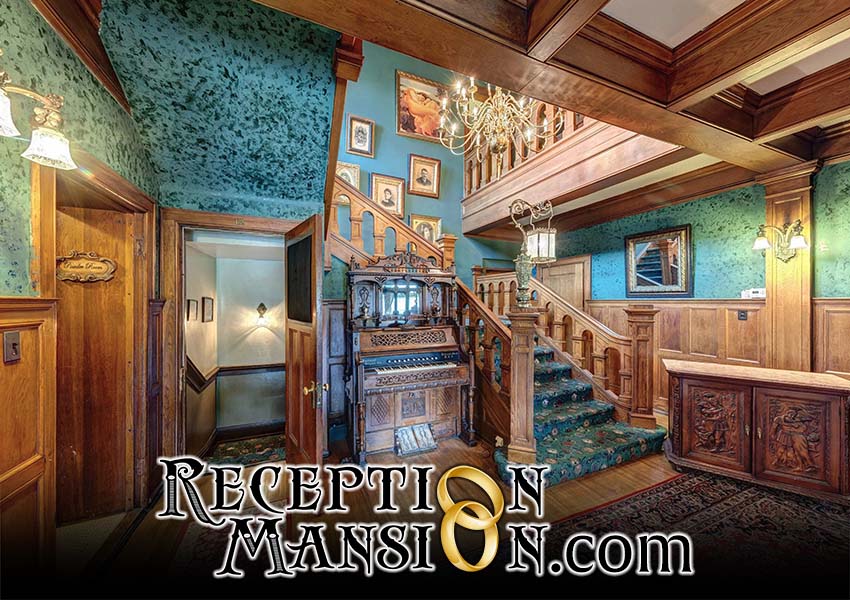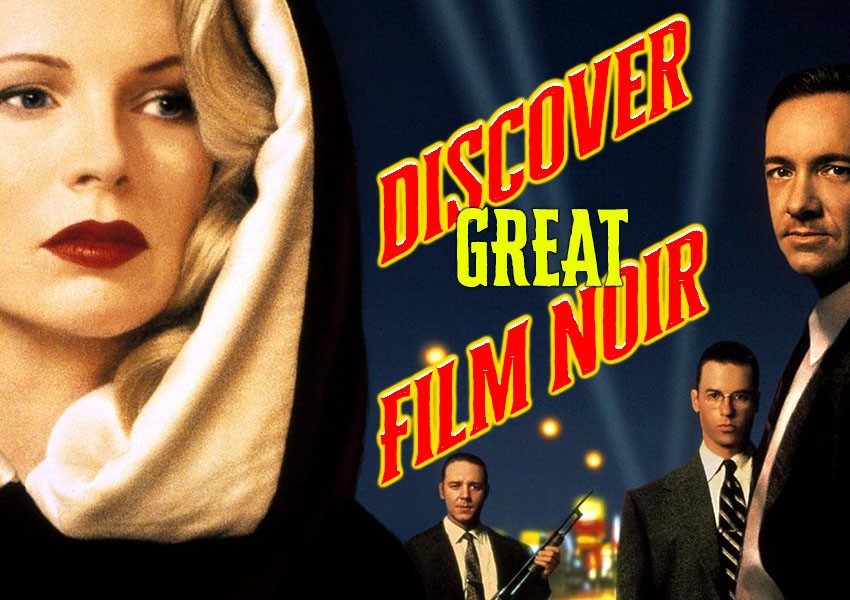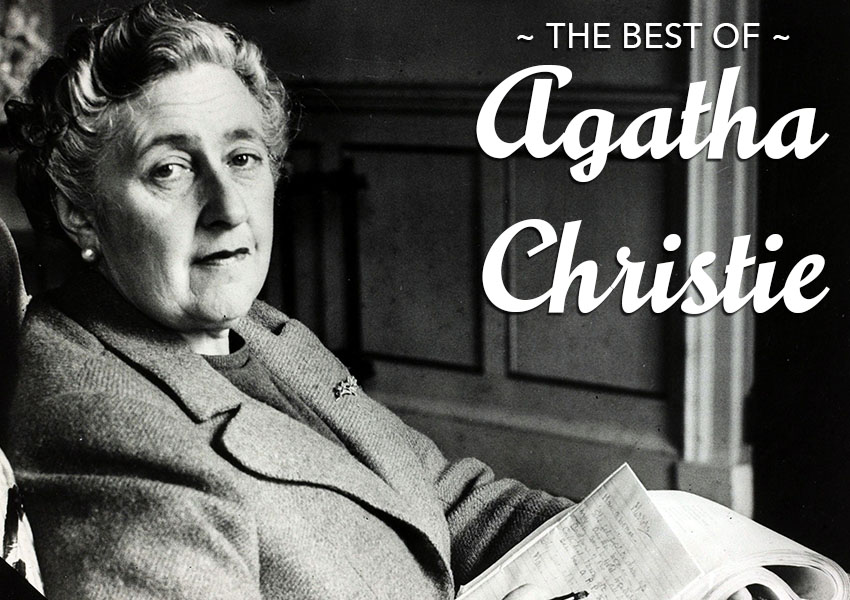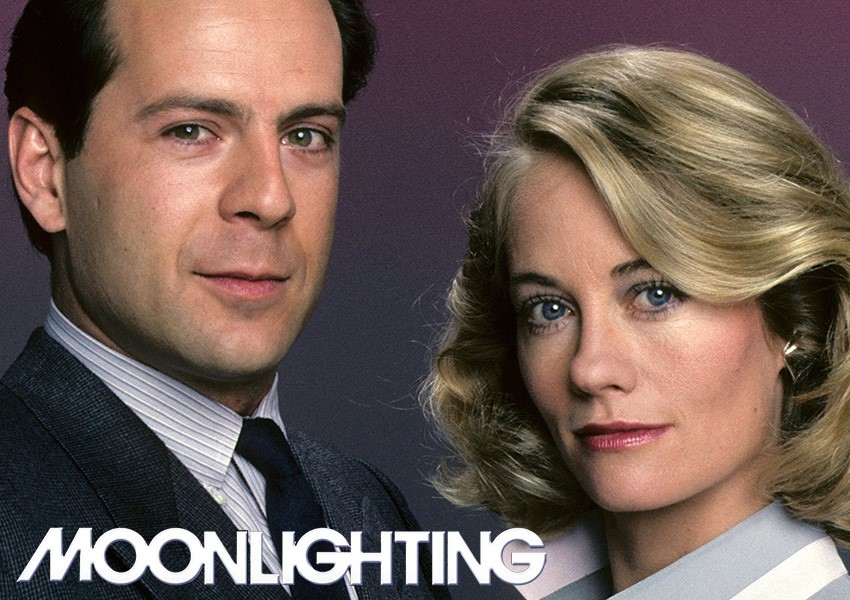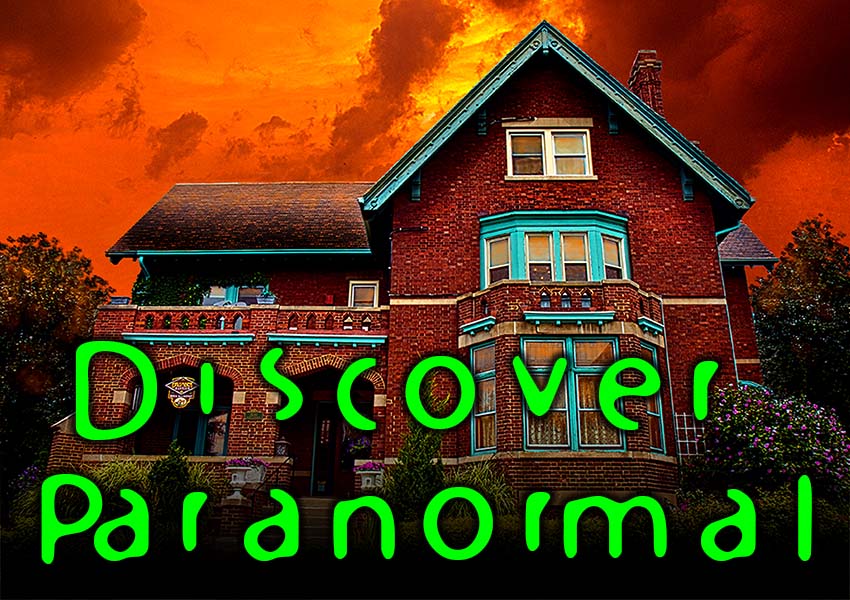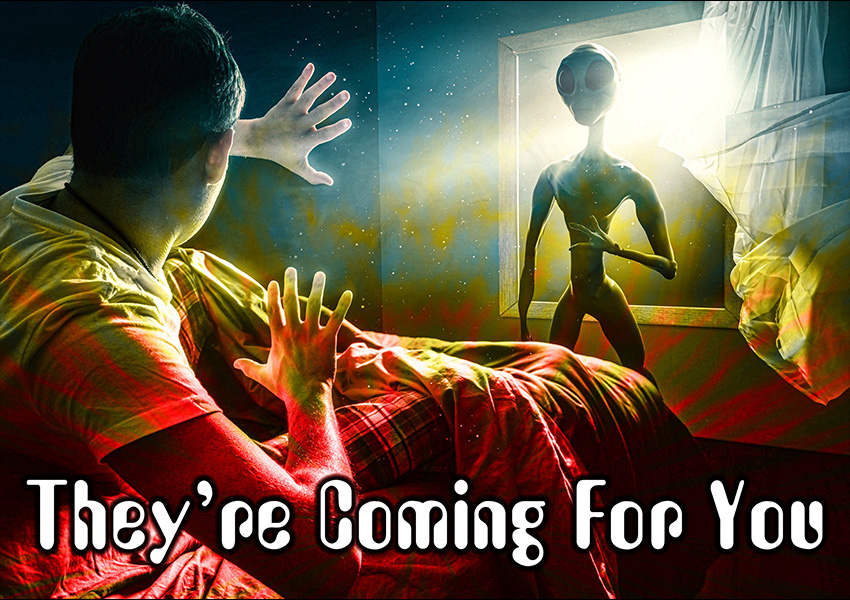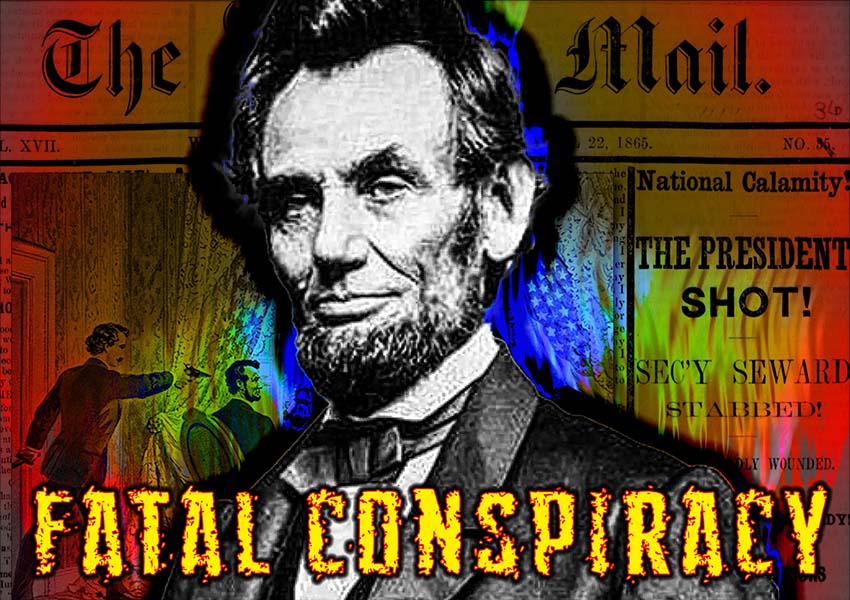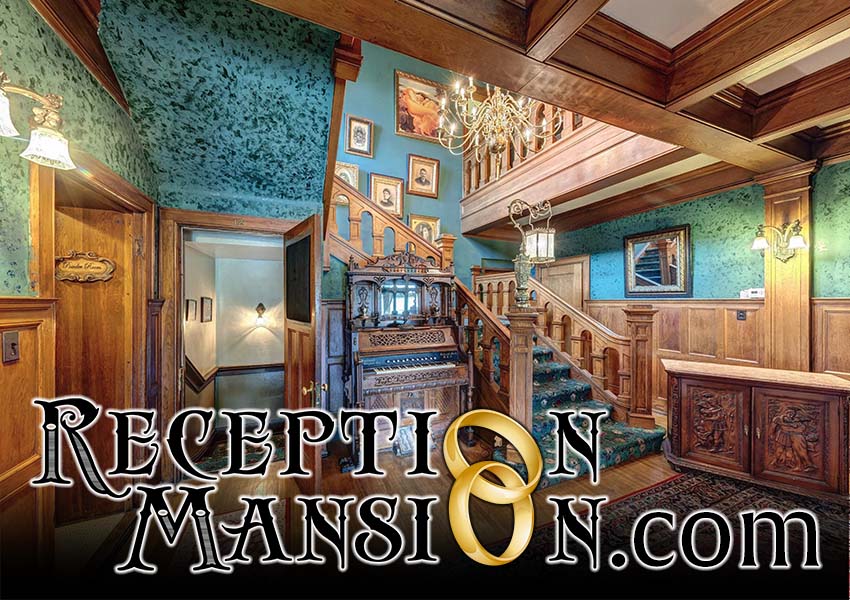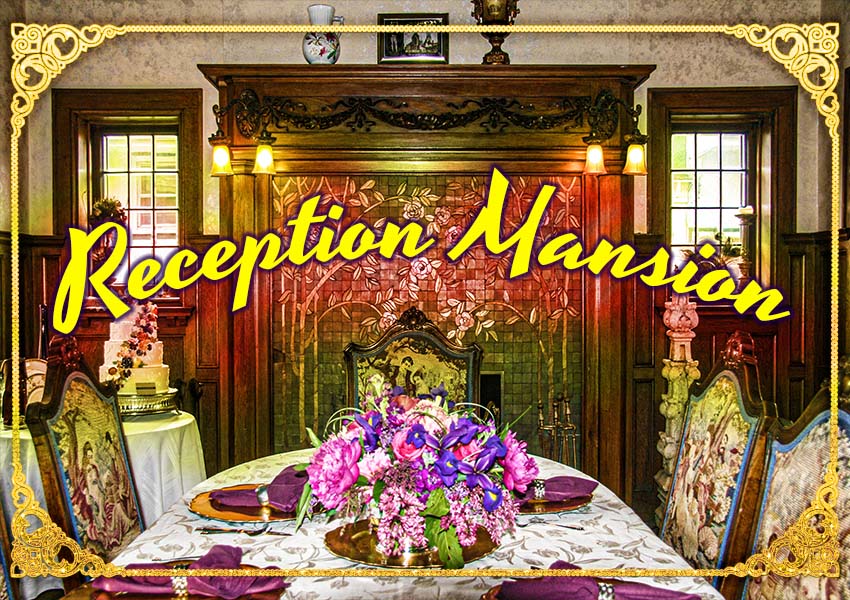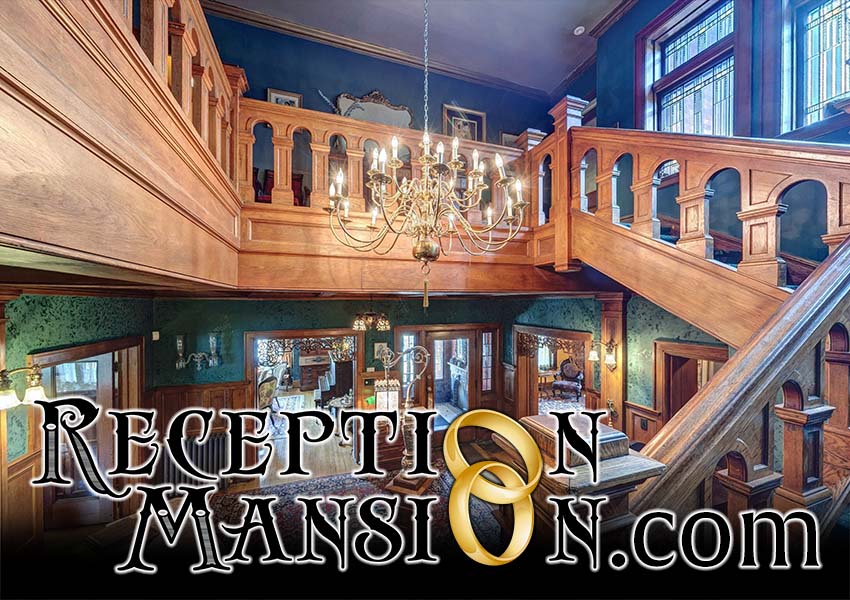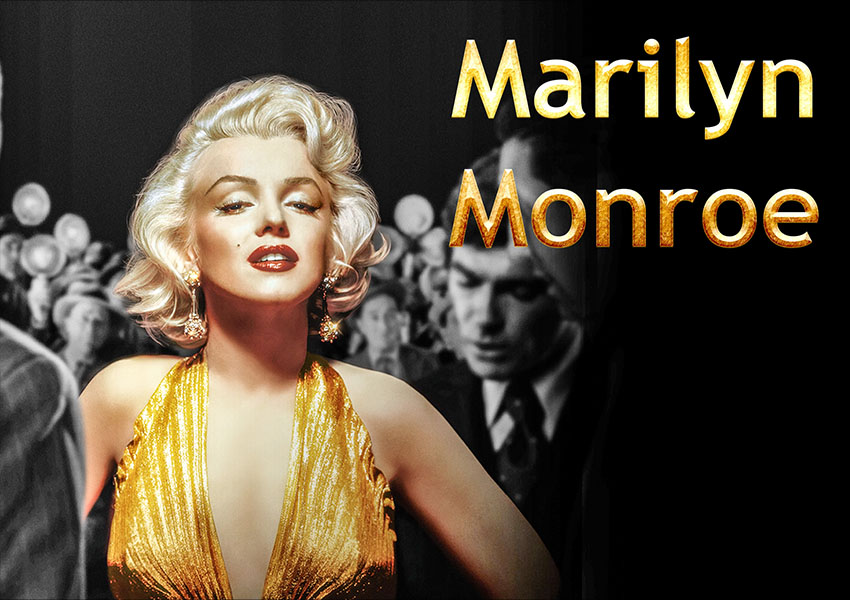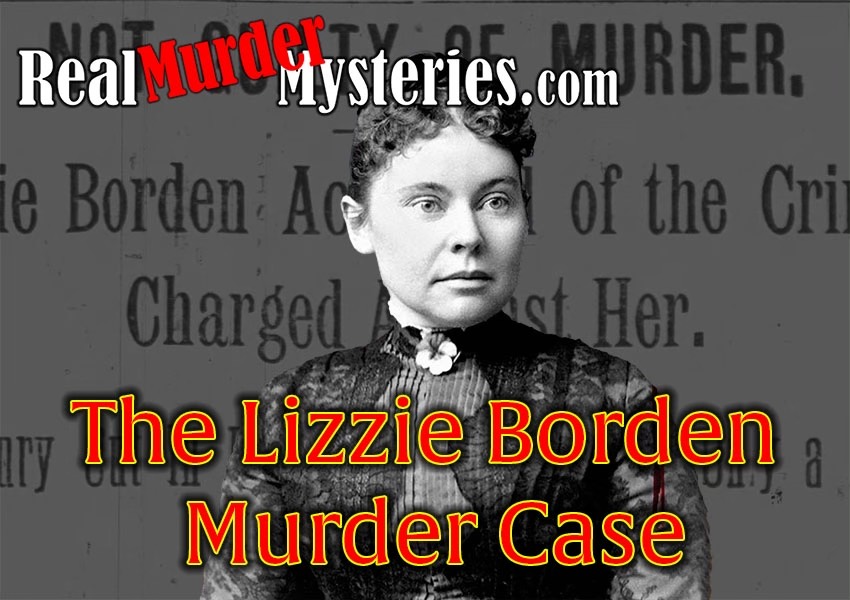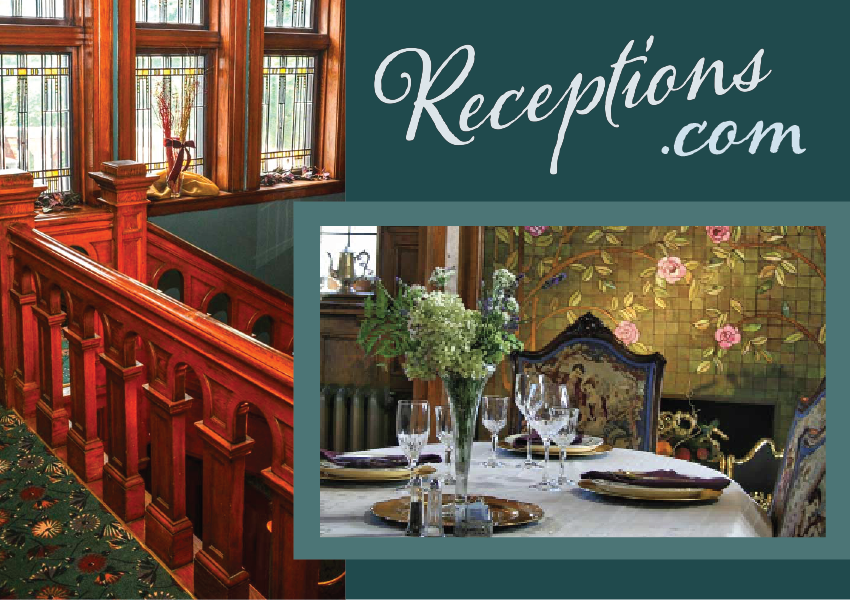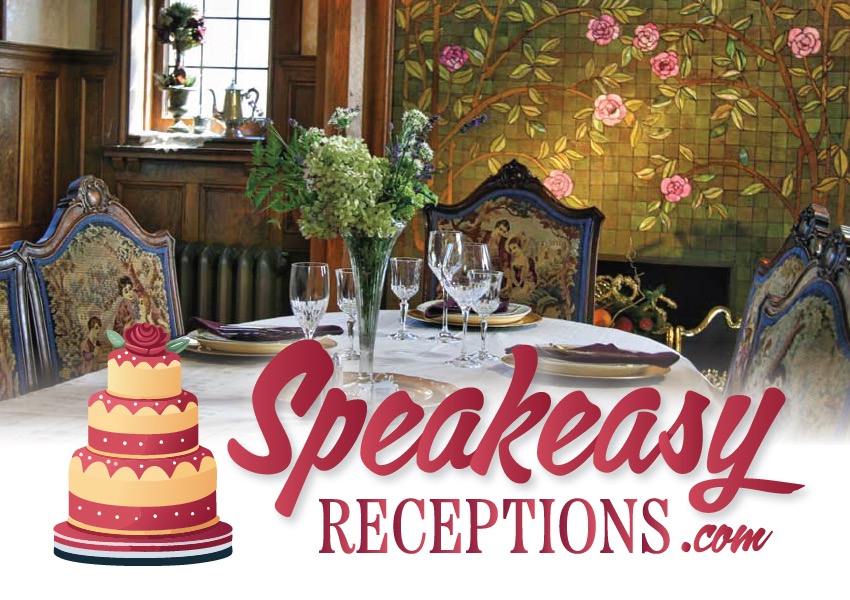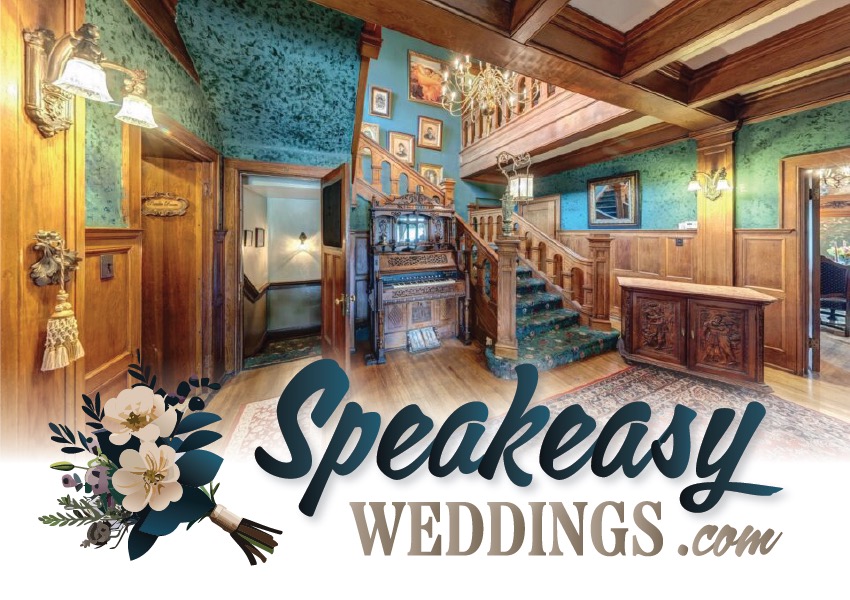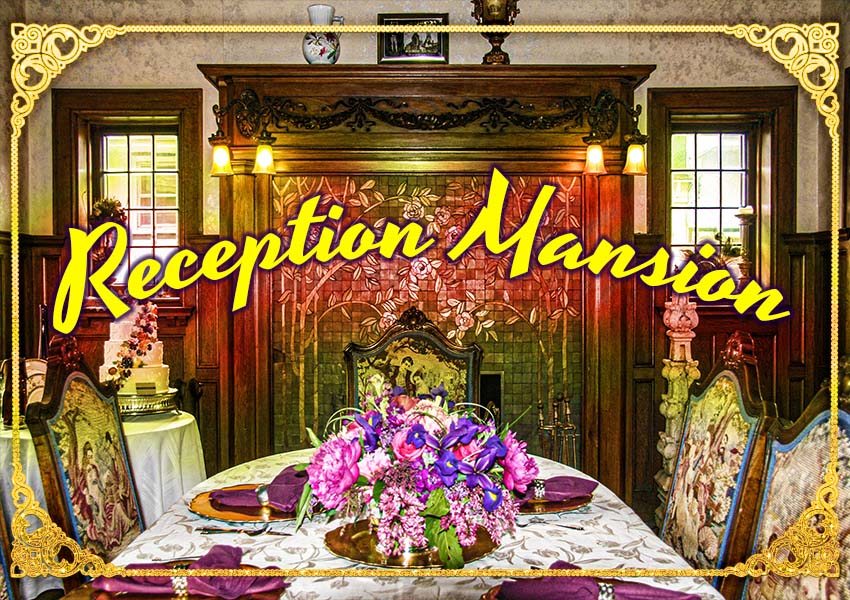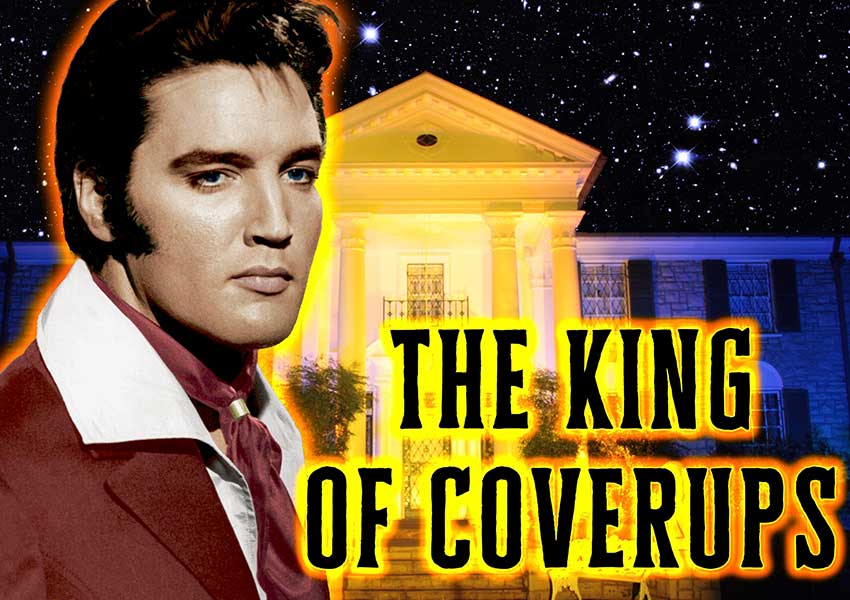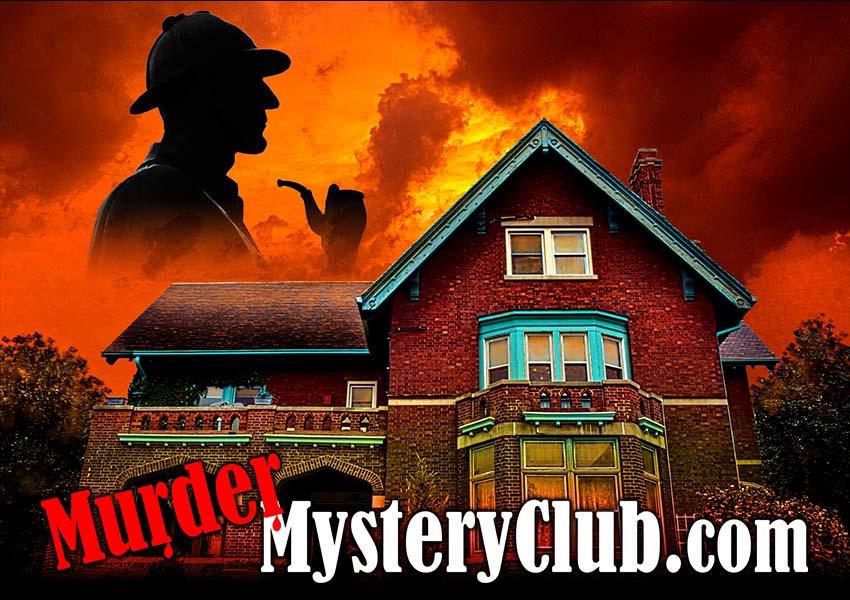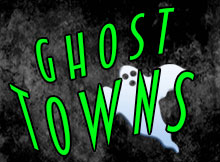Raleigh North Carolina
Andrew Johnson Home
A spirit is still waiting for someone to come home, or is looking for possible danger.
Lighted candles have given a project employee the shivers.
This structure is still a special place in this world for a male
spirit who finds peace and comfort here.
DESCRIPTION
The Andrew Johnson Birthplace Home can be called the first “Tiny House” made famous by who was born there. People of the 21st century who are part of the Tiny House Movement would be enamored by its size and simplicity.
The Andrew Johnson Home is described as a simple, very humble, tiny, two story, gambrel-roof house, on display at Mordecai Manor Historical Park. It sits near the small building now used as an office for the Raleigh Historic Properties. It was the birthplace of our 17th President, Andrew Johnson, in 1808.
Andrew Johnson parents were very poor, and they stayed here as a perk for working at the roadside tavern called Casso’s Inn, located in front of their humble abode.
The house has a small, single window by the front door, which is in the middle of the front of the house and a small single window in the middle of the second floor loft directly above the front door.
The sides of the home have two tiny windows, making this home a rather dark one inside. The lack of any other windows makes any light coming from these single windows very visible and direct.
It was a sturdy, little structure that was easily moved several places during its history, which is a perk associated with tiny houses. Inside, there was a fireplace, a very small area for the first floor, room enough for a table and chairs and some room for cooking and preparation of food. There is a ladder that leads up to the loft above, where the family or individuals slept. People who lived here during its long history didn’t have many possessions.
There was no indoor plumbing,which meant occupants used old-fashioned chamber pots and an outhouse. Water had to be brought inside for bathing or washing. In nice weather, washing was done outside. They used candle light to see at night.
This house stayed in its Colonial state all the way through its years of being a humble house for poor residents.
Obviously, there was no gas hook-up for gaslight, or wires for electricity, so residents still used candle light, because the rent received wouldn’t cover a renovation of this tiny house.
HISTORY
The Andrew Johnson Birthplace Home started off being the outside kitchen for the Casso’s Inn. This tiny structure was originally located behind the Casso’s Inn, on lot 162. It somehow escaped the horrendous fire that consumed structures on the east side of Fayetteville Street, in 1816 and 1821.
Andrew Johnson parents were very poor, and they stayed here as a perk for working at the roadside tavern called Casso’s Inn. When the Johnsons came to work as servants at the Casso’s Inn, the outside kitchen was partially transformed into living quarters for these hard-working servants. In 1808, Andrew Johnson was born in the loft to this very poor couple who dearly loved him in 1808. His father died four years later.
Andrew wasn’t able to go to school, but fortunately was apprenticed to a nearby tailer, James Selby at the tender age of ten; guaranteeing that he would be fed and clothed, as well as learn a trade. Customers and fellow employees helped him along on his journey to learn to read by teaching him some literacy skills, which spurred the interest in him to try to teach himself.
He became unhappy as a teenager, and ran away from his apprenticeship, at some point joining his mother and stepfather. He wound up in Greenville Tennessee with his family, where he started his own Tailor Shop and invested his earnings from his business in real estate, rising to middle class fast.
He married a young, cultured young lady, Eliza McCardle, who helped him improve his self-taught reading and writing skills. His early passion was the plight of the working class and the poor; people who he fought for his entire political career. His hard childhood and youth taught him to be resolute, and be determined; “to stick to his guns” despite any obstacles thrown in his path. Look out! He became a motivated mover and shaker, with steel resolve and a tenacity to sees things through.
Andrew Johnson started his political career in Greenville, TN. He was elected first to be the town Alderman and then advanced to being elected Mayor of Greeneville in 1834. Johnson’s political career didn’t stop there; he was elected to serve in both houses of the Tennessee State Legislature. “The platform he ran on primarily advocated for the poor and for westward expansion.”
Andrew Johnson then was elected to the U.S. House of Representatives in 1843, where he served five two-year terms. He became governor of Tennessee in 1853. Andrew Johnson had his eye on Washington DC and ran for Senator, to represent the state of Tennessee. He accomplished this goalin 1857, representing the state of Tennessee.
Eliza and Andrew had two daughters: Martha and Mary, and three sons:Charles, Robert & Frank. All three of the sons died in their prime before age 35. Charles died in 1863, a surgeon’s assistant, when he was thrown from his horse during the Civil War. TB hit his family hard. One son died of TB, and the other son died of TB combined with drinking. His wife also eventyually died of TB, and was sick with it when Andrew became President.
Martha, his oldest daughter, was a “chip off the old block”; very forthright and not afraid of conflict, while sticking to her principles. When her mother’s Tuberculosis prevented her mother from carrying out her First Lady duties, Martha stepped into her mother’s shoes and did the honors brilliantly. She offered strong support for her father.
Both daughters worked together to safe-guard their father’s memory. “Martha and her descendants became the keepers of the Johnson Homestead, Tailor Shop, and Cemetery( in Greenville, Tennessee). They actively promoted the preservation of the sites and encouraged their inclusion within the National Park Service.”
After Johnson’s state constituency of Tennessee left the Union, Johnson was the only southern politician who didn’t resign, being a true Unionist though still a slave-holder who argued that the Bill of Rights and Declaration of Independence didn’t apply to slaves. However, in 1863, he freed his slaves and gave them the option of leaving or staying to work for wages, realizing that slavery had to end. His wife was already allowing them to keep more of the money than was the norm for working out for other folks. They all decided to stay.
In the election of 1864, President chose Andrew Johnson to run as his Vice-President, trying to open the door to reconciliation outreach with the goal of hopefully reunifying the country. After Lincoln was assassinated soon after the end of the war, Johnson’s strong character was on display when he had to lead reconstruction plans. The northern politicians disliked him because he was a Southerner, and the southern politicians disliked him because he stuck with the Union side. Plus, they didn’t see eye-to-eye about how to reconstruct the South.
The Congress wanted punitive measures against the South, while Vice-President Johnson tenaciously held to the plans and more reconciliatory ways that President Lincoln had wanted to implement. This fierce, non-compromising passion to do the right thing, nearly got him impeached and thrown out of office. His attitude was unmoved.
In the end, the final plans “evolved into a living document with pivotal amendments on freedom, citizenship, and voting rights.” He remained in office to finish out his term because there was one more vote against impeachment than the votes tallied for impeachment in the Senate. He had a defiant attitude toward his foes and knew that he had followed his principles. Though the impeachment trial put a big damper on his political career, this black mark didn’t last.
Even after nearly getting impeached and thrown out of office, he was re-elected as a Senator for Tennessee in 1875; the only United States president to come back as a elected politician in Washington D.C.. He died from a stroke during this term of service while visiting his daughter, Mary and her family; perhaps the stress of being the president did some damage to his health.
On the there hand, Andrew Johnson had survived his father’s early death, all his early struggles, all the TB related deaths of his sons and wife, his first son’s death by accident, and all the hassle and political strife during his Presidency, yet he carried on and lived fairly long to a ripe old age of 67; not bad for this era!
This humble little house was his starting point, in the poverty that molded him and made him the man he became; a determined soul who never flinched from his beliefs and his causes. Perhaps, Andrew Johnson didn’t want to see the humble house where he was born, as it probably had a lot of hard, painful memories attached to that time period.
“In 1867, when the president returned to Raleigh to dedicate a monument at his father’s grave, his itinerary was meticulously detailed in the local newspapers; yet, no mention whatsoever was made of a visit to, inquiry about, or interest in the house in which he was born.”
This humble little house stood where it was originally built until the early 1880s, until a lady by the name of Catherine Pool bought this place from the owners of the property; probably seeing it as an eye-sore and not useful to them anymore. Between 1880 and 1884, Mrs. Pool moved this little house to lot 33 on Cabarrus Street. It was rented to a poor, black family. As the rent was low, not much money was available to maintain or renovate it, so it slowly descended into a creaky fixer-upper state.
Andrew Johnson Birthplace Home’s historical value was rediscovered by well known, North Carolinian historian, Col Frederick A. Olds. This recognition of it’s importance by Olds inspired the Wake County Chapter of the North Carolina Society of the Colonial Dames of America to purchase this humble home in 1904 for one hundred dollars. They paid to have it moved to Pullen Park near the railroad tracks where it could be on display as part of the heritage of the great state of North Carolina.
Because Andrew Johnson Birthplace Home was near the railroad, “forgotten men” known then as “Hoboes” began to sleep there during the Great Depression. Perhaps an incident happened here to draw attention to the “Hobo” occupancy issues. The Andrew Johnson Birthplace Home was moved a second time during the 1930s’ in Pullen Park for a better place to protect it; further away from the railroad tracks.
The little home was opened up again in 1940 briefly, until WW2 started in 1941. A restoration project was started, and continued through WW2. The home reopened in 1948, while the restoration continued.
Andrew Johnson Birthplace Home’s last move happened in 1975 to Mordecai Historic Park, to join other historic buildings of Raleigh that had found a home as being historical displays of structures from Raleigh’s past. Apparently, this historic Andrew Johnson Birthplace Home is still home to a spirit of a man, unknown person.
HISTORY OF MANIFESTATIONS
When creaky fixer-upper opportunities are restored, spirits who were attached to the structure can choose to be drawn back to their favorite place in this world.
Pittock House Museum, OR (When this creaky structure was restored to its former glory, including the original furnishings and pictures, the spirits of Mr. and Mrs. Pittock moved back inside).
Hartford Twain House Museum, CT (After this creaky, fixer-upper opportunity was restored to its original glorious state, the spirits of the Twain household gladly moved back inside. Some unseen spirits even welcome visitors).
Brumder Mansion & Theatre, WI (After a replica of a 1920s bar was put together in the basement theatre, the spirits of the old Sam Pick speakeasy crew became very active indeed).
Andrew Johnson Birthplace Home, NC (After this structure was moved to Pullen Park, it was restored. After it was moved to Mordecai Manor Historical Park, it was fully restored to what it originally looked like, including furniture replicas that may have been there in its history, if not during the brief years that the Johnsons lived there).
Spirits can decide to stay in a place where they felt safe; being their special place in this world.
Stranahan House, Fl (A little Native American girl, along with members of the Stranahan family stay here, feeling the love and peace they need).
Historic Bush House Museum, OR (The spirit of a Bush daughter who struggled with mental illness has moved back inside her family home where she felt loved, cherished and safe).
Jenny Wade House, PA (Spirits of children from the town orphanage who were befriended by kind Jenny Wade and her family, still play here where they had a respite from the cruel conditions at their orphanage and felt love, peace, and were safe).
Andrew Johnson Birthplace Home, NC (Many people without means lived here during the time it was a little home, from 1808-1903, and briefly by Hoboes during the Great Depression. Though it was small, it was a special place to stay out of the rain and snow, and had some of the essentials of life, except a bathroom, running water and electricity; three things considered mandatory in our present society).
(It had a fireplace, a place to have a table for eating, some storage, a place for a bath tub/ wash basin if you removed the storage, and a loft for sleeping).
Spirits can attach to structures, and when the structure is moved, they come along for the ride.
Dutton House in Shelbourne Museum, VT (The Dutton family forever home was donated to the Shelbourne Museum, and moved piece by piece and reassembled. Spectral members of the Dutton clan who were attached to this house came along for the ride).
Hartford Huguenot House, CT (Spirits who were attached to this family forever home not only came along for the ride, but one spirit of a male wanted to help in the restoration, so the living work crew foreman gave him a list of projects to do!).
Hampton Lillibridge House, Savannah, GA (When this house was moved to another lot, restoration workers discovered that spirits in a variety of moods attached to this structure had come along for the ride).
Andrew Johnson Birthplace Home, NC (A male person who once stayed or resided here probably attached himself to this tiny home, and came along for the ride as this structure was moved around Raleigh, NC).
People who die inside or near a structure, can decide to move inside to reside there for a variety of reasons. Sickness, disease, accident, natural causes or murder are common ways to die; especially among the poor, down and struggling.
Newhouse Hotel, CO (When it was a flop house, a prostitute was killed here when she tried one too many times to take money out of a client’s wallet).
Kolb Ridge Court, GA (Homes built on the site of the The Battle of Kolb’s Farm, a location of Civil War skirmish, have had spirits of soldiers walk through and sometimes decide to reside with the living; enjoying the nice home picked to be his residence as a spirit).
Dumas Brothel, ND (A female prostitute who worked in the basement cribs where sexual services for the frugal were offered, a prostitute was beaten to death by a client with anger issues).
Andrew Johnson Birthplace Home, NC (A male person who lived here may have succumbed to an epidemic that swept through town, had a fatal accident, or could’ve been murdered. Both the southern and northern states sometimes were not very safe places for African Americans).
(A male Hobo could’ve been killed or badly hurt in a fight over who would stay in this tiny house or in a robbery attempt by another “forgotten man.” It is possible that this is the reason why they moved Andrew Johnson Birthplace Home to a place in the park further away from the railroad tracks).
If a spirit dies suddenly with unfinished business, this can cause them to be restless.
Herlong Mansion Bed & Breakfast, FL (Two female spirits reside here when they died unexpectedly and quickly, before they could accomplish their cherished goals).
Liberty Hall, KY (Mrs. Varick had traveled to Liberty Hall to comfort and help her grieving niece who had lost a child. Unfortunately, Mrs. Varick died not long after arriving. She as a spirit has made up for it in her after-life).
Abraham Curry House (The spirit of Abraham Curry still has concerns about his wife and family).
Andrew Johnson Birthplace Home, NC (This male spirit could’ve died unexpectedly before he could earn enough money to move on to a better life with his family, or return home to his family. Perhaps this spirit is worried about the family he left behind).
MANIFESTATIONS
Employees who work at Mordecai Manor Historical Park have witnessed the same paranormal activity to the point that everyone knows for sure that Andrew Johnson Birthplace Home has a spectral, in-house caretaker.
Male Spirit
This spirit is a gentle, polite, benign fellow, who will answer questions via EVPs.
In his mind’s eye, he may travel to his old job, and/or go about his daily activities.
Despite what he does in his mind’s eye, during the day, he always comes back to his little house.
He is willing to share his space with visitors during the day, as he has this little house to himself once Mordecai Manor Historical Park closes.
His unseen presence has been felt by employees, probably during the day, and definitely at the end of their day of working here.
Common Experience: Unseen Presence
Raleigh Historic Properties main office structure is in a historic building located right next to Andrew Johnson Birthplace Home.
During a November afternoon, a female employee of Raleigh Historic Properties was involved in a project in the Raleigh Historic Properties’ main office.
Before she knew it, it was dark, and she was the only one left on the property. All other buildings had been locked up for the evening.
As she left the building, she was overcome with an uneasy feeling, like a presence was there, somewhere near her. She had quite a start when a cat rushed by her, after another animal.
Still feeling uneasy, she hurried toward the parking lot.
Mysterious Candle Light
This candle light experience has also been seen by other living people.
As she arrived right in front of The Anderson Johnson Birthplace Home, she happened to look directly at the front of the house, and saw a lighted candle being held by an invisible hand in the window by the front door on the first floor.
Mesmerized, she stood there, and watched the candle until it was about to go out, when it suddenly moved away from the window.
Sudden Reappearance
Only a moment later, the candle light reappeared in the little window in the middle of the second floor, directly above the front door.
It happened so quickly that there is no way a living person could go up the stairs that fast to light another candle on the second floor.
Frightened, she ran to the parking lot, and looked back at the second floor candle light.
It suddenly went out, like someone had put it out with a period candle snuffer.
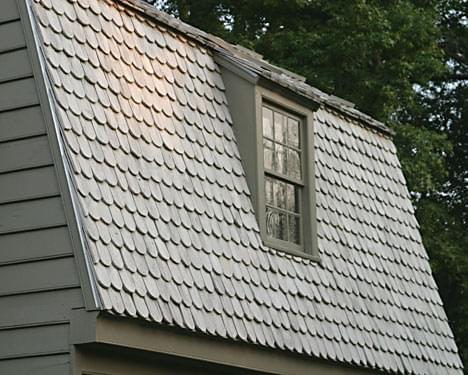
PARANORMAL FINDINGS
People who work here, and sometimes visitors have had personal experiences with this gentle, benign spirit.
GHOST GUILD is the official paranormal investigation group that keeps an eye on the spirits who love these buildings. Spirits are considered part of this Mordecai Manor Historic Park. Everyone acknowledges that spirits love their particular structures, and that a male spirit resides in Andrew Johnson Birthplace Home.
This group has caught some telling hard evidence. Nelson Nauss of Ghost Guild said,”One of the good EVPs we’ve gotten here is when we asked the question ‘Were you ever alive?”‘ Nauss said. “And we got a very clear response saying ‘Yeah, I was alive!'”
Nelson Nauss and another paranormal investigation group asked, “Where were you from?” The EVP answer for both groups was “Philadelphia.”
STILL HAUNTED?
A big Yes Indeed, though who is here is yet to be determined. There are several theories of who it could be and why they may still be here.
It could be a spirit of a past 19th Century renter who stays here; or a Hobo from the park. Whoever it is, this spirit finds this little house to be a refuge from his struggles. The spirit is so benign and happy, perhaps he has decided to spend his after-life here in his own little house, not quite ready to go to the other side.
It is very dark inside this little house so some sort of light was/is needed to navigate the steps to the loft. though spirits don’t need light, he may light it out of habit.
The use of a candle light and candle snuffer suggests that this could be a Colonial-era spirit, before gas lanterns were invented. Or, perhaps a poor family or single person wouldn’t be able to afford a gas lantern, even when available and used old-fashioned, candle light at night.
Why do the living see the strange candle light? Perhaps he is announcing his presence to the living witnesses who see this candle light. Perhaps he is looking for a loved one to come home to the little house.
If this spirit was murdered inside or outside, this spirit could be looking out the window see if anyone with hostile intent was coming; something he thinks could’ve prevented him from being murdered. Determined not to do the same mistake, he likes to peer out the windows by candle light; finding some peace to counter-act his unsettling feelings suffered from his death that he is working through.
It could also be a Hobo from the 1930s’ who may have lost his life while sleeping nearby or inside this historic tiny home, while being robbed by another “forgotten man.”
LOCATION
1 Mimosa Street
Raleigh, NC 27604
The Andrew Johnson home can be found in a small historic park near the heart of old Raleigh, called Mordecai Square. In Mordecai Square Park, there is also a small chapel and a small building that was used for an early law office.
Our Haunted Paranormal Stories are Written by Julie Carr
Your Road Trip to Milwaukee’s Hot Spots
SOURCES INCLUDE
ncpedia.org
roadsideamerica.com
nps.gov
abc11.com




